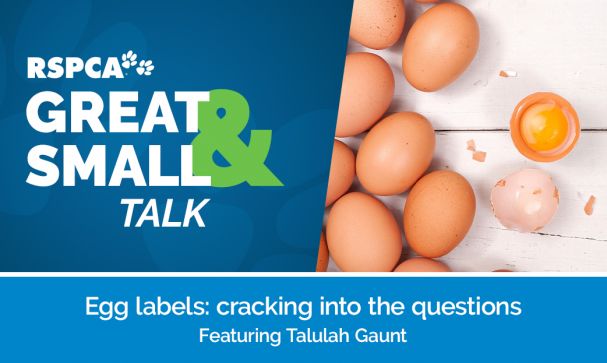Most pigs in Australia are raised in intensive farming systems where they are kept closely confined and unable to forage in the dirt or wallow in the mud.
More about pigs
If a pork product is not labelled as free range, outdoor bred or RSPCA Approved, it will most likely have come from an intensive conventional farming system. Intensive conventional farming systems usually confine pigs to a barren indoor-only environment, which leads to a higher risk poor welfare. For example, sows (mother pigs) are regularly confined to farrowing crates from the final week of their pregnancy until their piglets are weaned at a few weeks of age. A farrowing crate is a barren, metal crate, usually with a concrete floor. With only enough space to stand up, she can’t turn around and can only take a short step forward and back, and she will remain here until her piglets are weaned. Pigs farmed in these systems suffer enormously, through a continuous cycle of chronic frustration and discomfort.
The sow’s piglets are usually reared (grown out) in intensive indoor, semi-outdoor (deep litter) or outdoor (free-range) housing systems. Intensive indoor systems pose a number of serious welfare issues for pigs including lack of space, lack of enrichment, and painful practices like tail docking and teeth clipping.
Outdoor-bred pork comes from pigs that are born in a free-range environment but are raised indoors. This could mean they’re raised in large open sheds with straw bedding or in pens with concrete floors. The breeding pigs have access to the outdoors.
Free-range pork comes from pigs that were born and raised with access to the outdoors. This means that the boars, sows and growing pigs have access to paddocks, as well as huts or other forms of housing for shelter, and they’re not confined to boar stalls, mating stalls, sow stalls or farrowing crates.
RSPCA Approved pork comes from pigs reared in a well-managed free-range system, in an enhanced indoor environment or a combination of both, with a focus on catering for the animals’ behavioural and physiological needs. This includes providing environmental enrichment, including straw for foraging and nest building, as well as sufficient space to move freely. The RSPCA Approved Farming Scheme Standard for Pigs doesn’t allow boar stalls, mating stalls, sow stalls or farrowing crates. These pig farms and the abattoirs used are assessed regularly to ensure the Standard is met for RSPCA Approved certification.
To learn more about what pork product labels mean, click here

















